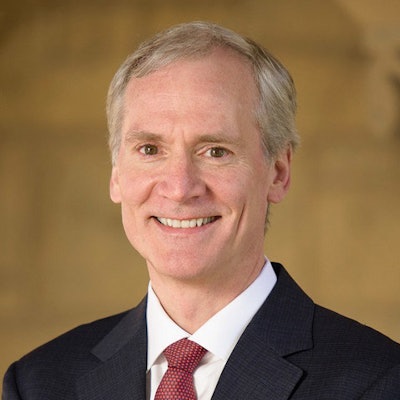Stanford President Dr. Marc Tessier-Lavigne will resign and retract or issue significant corrections to five of his papers after a Stanford-sponsored investigation found research data manipulation, The Stanford Daily reported. Dr. Marc Tessier-Lavigne
Dr. Marc Tessier-Lavigne
The eight-month investigation found multiple cases of neuroscience research data manipulation or subpar scientific practices from people and in labs run by Dr. Tessier-Lavigne at various institutions.
The widely cited papers – Tessier-Lavigne was principal author on them – involved fudging of results under Tessier-Lavigne’s oversight across labs at three institutions, the report said. There was a culture where he tended to reward postdocs who could generate favorable results and marginalize or diminish those who were unable or struggled to generate such data, according to the report.
Although there was no evidence that Tessier-Lavigne himself manipulated or was aware of manipulations at the time, he has not adequately explained why he did not make corrections when given opportunities to do so.
“At various times when concerns with Dr. Tessier-Lavigne’s papers emerged—in 2001, the early 2010s, 2015-2016, and March 2021—Dr. Tessier-Lavigne failed to decisively and forthrightly correct mistakes in the scientific record,” the school’s report stated.
Tessier-Lavigne will step down Aug. 31 “in light of the report and its impact on his ability to lead Stanford,” Stanford Board of Trustees Chair Jerry Yang said.
Allegations about the Stanford leader’s research came to light over the last seven years.
“The report identified some areas where I should have done better, and I accept the report’s conclusions,” Tessier-Lavigne said in a statement.
One concern surrounding the report was that witnesses to an alleged fraud during Tessier-Lavigne’s time at biotechnology company Genentech were not given anonymity by investigators and so refused to cooperate, a move from investigators that outside observers wonder hindered the investigation.
The report also stated that accounts of five high-level Genentech executives and scientists one incident of reported fraud in Tessier-Lavigne’s laboratory were not accurate, a conclusion that Tessier-Lavigne argues refutes allegations of fraud and misconduct.
Former Dean of Humanities Dr. Richard Saller will become interim president.





















